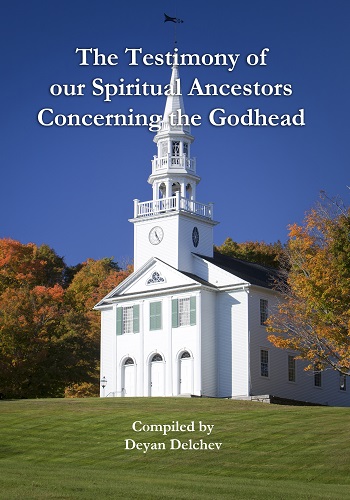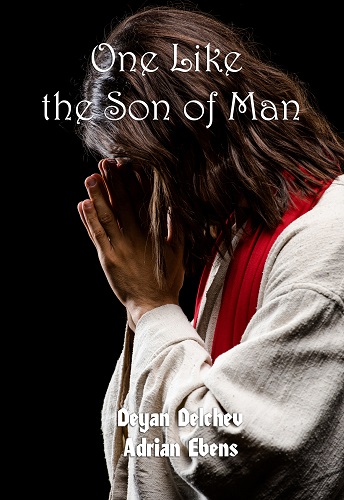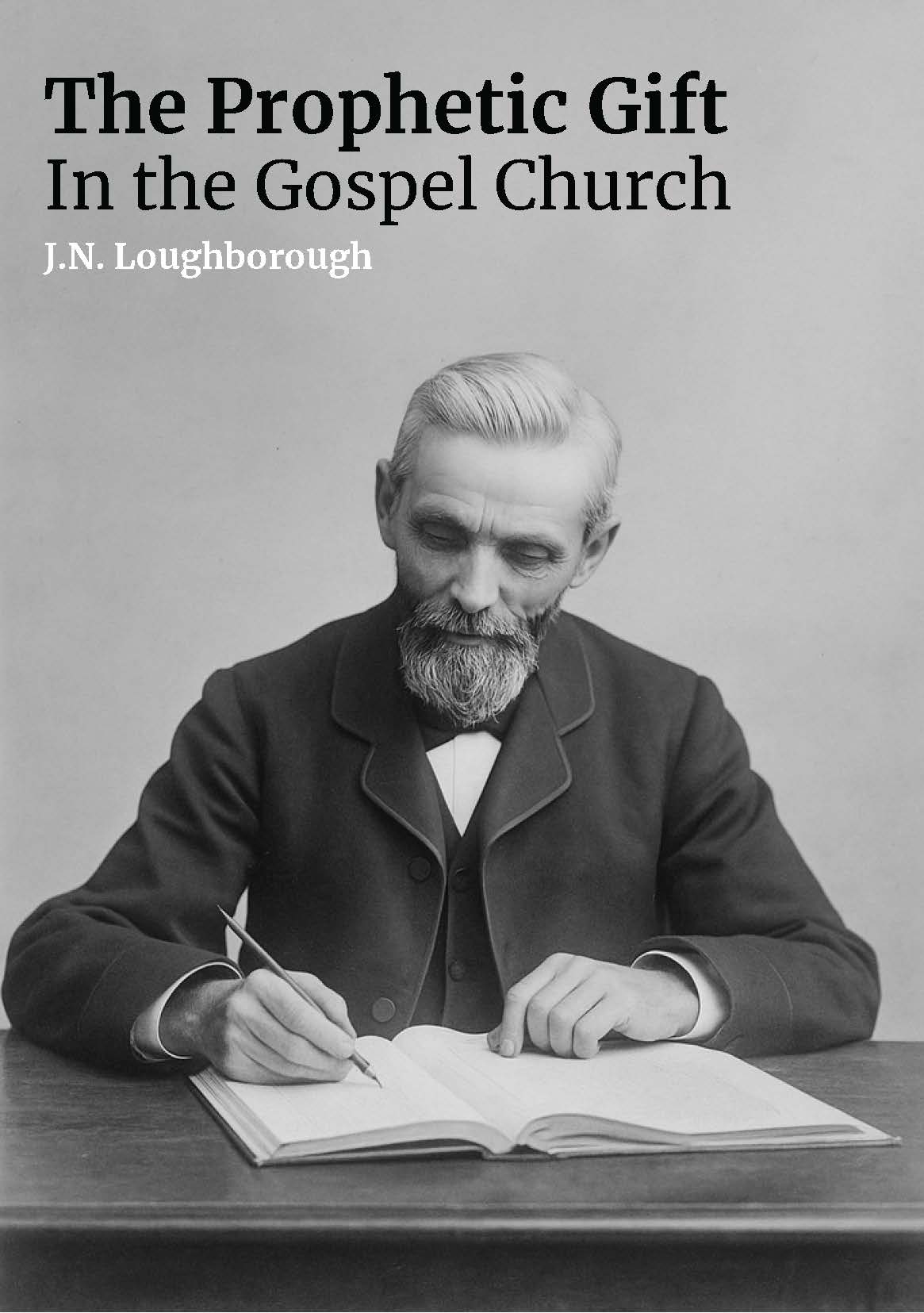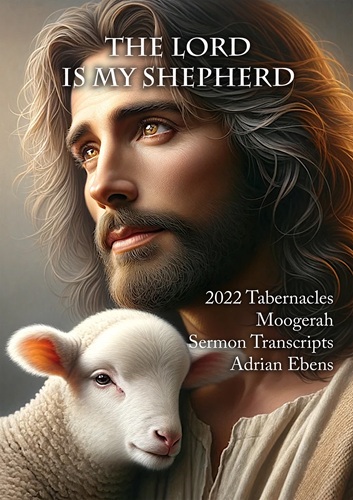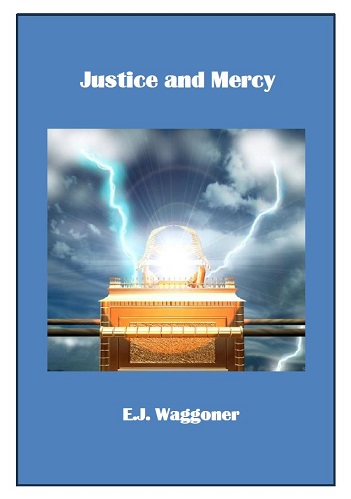A Call From Heaven Inviting You To Keep the Statutes and Ordinances
compiled from the writings of Ellen G. White by Frank Klin
“And after threescore and two weeks shall Messiah be cut off, but not for Himself: and the people of the prince that shall come shall destroy the city and the sanctuary; and the end thereof shall be with a flood, and unto the end of the war desolations are determined. And He shall confirm the covenant with many for one week: and in the midst of the week He shall cause the sacrifice and the oblation to cease, and for the overspreading of abominations he shall make it desolate, even until the consummation, and that determined shall be poured upon the desolate.” – {Daniel 9:26-27 KJV}
The light given me is that we are to study more than we do the instruction given to Moses by God after He had proclaimed the law from Sinai. The ten commandments were spoken by God Himself, and were then written on tables of stone, to be preserved till the judgment should take place. After the giving of the law, God gave Moses specifications regarding the law. These specifications are plain and explicit. No one need make a mistake. {Australasion Union Conference Record, March 25, 1907 par. 3}
In the day of judgment we shall be asked whether we have lived in harmony with these specifications. It is because we do not carry out these specifications in all our dealings, in our institutions, our families, and in our individual lives, at all times, and in all places, that we do not make greater advancement. It is by the directions that God has given that we shall be judged at the last day. {Ibid, par. 4}
Have we studied these specifications? I heard them one night some weeks ago. It seemed as if they were being given to Israel, and there was the same solemnity that there was when they were given. I thought, This is given to me that I may tell our people that we must study these specifications. When the directions that God has given are followed, our institutions will be pure and clean, free from all selfishness and covetousness. The tenderness of Christ will come in. His love will fill our hearts. A sense of God's goodness will make us weep, and sing, and praise God. Then we shall be living channels of light, prepared to do His will. {Ibid, par. 5}
God gave a clear and definite knowledge of His will to Israel by especial precepts, showing the duty of man to God and to his fellow-men. The worship due to God was clearly defined. A special system of rites and ceremonies was established, which would secure the remembrance of God among His people, and thereby serve as a hedge to guard and protect the ten commandments from violation. {Advent Review and Sabbath Herald, May 6, 1875 par. 3}
God's people, whom He calls His peculiar treasure, were privileged with a two-fold system of law; the moral and the ceremonial. The one, pointing back to creation to keep in remembrance the living God who made the world, whose claims are binding upon all men in every dispensation, and which will exist through all time and eternity. The other, given because of man's transgression of the moral law, the obedience to which consisted in sacrifices and offerings pointing to the future redemption. Each is clear and distinct from the other. From the creation the moral law was an essential part of God's divine plan, and was as unchangeable as Himself. The ceremonial law was to answer a particular purpose of Christ’s plan for the salvation of the race. The typical system of sacrifices and offerings was established that through these services the sinner might discern the great offering, Christ. But the Jews were so blinded by pride and sin that but few of them could see farther than the death of beasts as an atonement for sin; and when Christ, whom these offerings prefigured, came, they could not discern Him. The ceremonial law was glorious; it was the provision made by Jesus Christ in counsel with His Father, to aid in the salvation of the race. The whole arrangement of the typical system was founded on Christ. Adam saw Christ prefigured in the innocent beast suffering the penalty of his transgression of Jehovah's law. {Ibid, par. 4}
The law of types reached forward to Christ. All hope and faith centered in Christ until type reached its antitype in His death. The statutes and judgments specifying the duty of man to his fellow-men, were full of important instruction, defining and simplifying the principles of the moral law, for the purpose of increasing religious knowledge, and of preserving God's chosen people distinct and separate from idolatrous nations. {Ibid, par. 5}
The statutes concerning marriage, inheritance, and strict justice in dealing with one another, were peculiar and contrary to the customs and manners of other nations, and were designed of God to keep his people separate from other nations. The necessity of this to preserve the people of God from becoming like the nations who had not the love and fear of God, is the same in this corrupt age, when the transgression of God's law prevails and idolatry exists to a fearful extent. If ancient Israel needed such security, we need it more, to keep us from being utterly confounded with the transgressors of God's law. The hearts of men are so prone to depart from God that there is a necessity for restraint and discipline. {Ibid, par. 6}
The love that God bore to man whom He had created in His own image, led Him to give His Son to die for man's transgression, and lest the increase of sin should lead him to forget God and the promised redemption, the system of sacrificial offerings was established to typify the perfect offering of the Son of God. {Ibid, par. 7}
Christ was the angel appointed of God to go before Moses in the wilderness, conducting the Israelites in their travels to the land of Canaan. Christ gave Moses His special directions to be given to Israel. "Moreover, brethren, I would not that ye should be ignorant, how that all our fathers were under the cloud, and all passed through the sea; and were all baptized unto Moses in the cloud and in the sea; and did all eat the same spiritual meat; and did all drink the same spiritual drink; for they drank of that spiritual Rock that followed them; and that Rock was Christ." {Ibid, par. 8}
"In the last day, that great day of the feast, Jesus stood and cried, saying, If any man thirst, let him come unto Me, and drink." These words were called out by witnessing a representation by the Jews of water flowing from the flinty rock. This commemoration of bringing water from the rock in the wilderness moves the heart of the Son of God to tenderest compassion and pity for their darkened understanding; for they will not see the light which He has brought to them. Christ tells them that He is that rock. I am that living water. Your fathers drank of that spiritual rock that followed them. That rock was Myself. It was through Christ alone that the Hebrews were favored with the especial blessings which they were continually receiving, notwithstanding their sinful murmurings and rebellion. {Ibid, par. 9}
In consequence of continual transgression, the moral law was repeated in awful grandeur from Sinai. Christ gave to Moses religious precepts which were to govern the everyday life. These statutes were explicitly given to guard the ten commandments. They were not shadowy types to pass away with the death of Christ. They were to be binding upon man in every age as long as time should last. These commands were enforced by the power of the moral law, and they clearly and definitely explained that law. {Ibid, par. 10}
Christ became sin for the fallen race, in taking upon Himself the condemnation resting upon the sinner for his transgression of the law of God. Christ stood at the head of the human family as their representative. He had taken upon Himself the sins of the world. In the likeness of sinful flesh He condemned sin in the flesh. He recognized the claims of the Jewish law until His death, when type met antitype. In the miracle He performed for the leper, He bade him go to the priests with an offering in accordance with the law of Moses. Thus He sanctioned the law requiring offerings. {Ibid, par. 11}
Christians who profess to be Bible students can appreciate more fully than ancient Israel did the full signification of the ceremonial ordinances that they were required to observe. If they are indeed Christians, they are prepared to acknowledge the sacredness and importance of the shadowy types, as they see the accomplishment of the events which they represent. The death of Christ gives the Christian a correct knowledge of the system of ceremonies and explains prophecies which still remain obscure to the Jews. Moses of himself framed no law. Christ, the angel whom God had appointed to go before His chosen people, gave to Moses statutes and requirements necessary to a living religion and to govern the people of God. Christians commit a terrible mistake in calling this law severe and arbitrary, and then contrasting it with the gospel and mission of Christ in His ministry on earth, as though He were in opposition to the just precepts which they call the law of Moses. {Ibid, par. 12}
The law of Jehovah, dating back to creation, was comprised in the two great principles, "Thou shalt love the Lord thy God with all thy heart, and with all thy soul, and with all thy mind, and with all thy strength. This is the first commandment. And the second is like, namely this: Thou shalt love thy neighbor as thyself. There is none other commandment greater than these." These two great principles embrace the first four commandments, showing the duty of man to God, and the last six, showing the duty of man to his fellow-man. The principles were more explicitly stated to man after the fall, and worded to meet the case of fallen intelligences. This was necessary in consequence of the minds of men being blinded by transgression. {Ibid, par. 13}
God graciously spoke His law and wrote it with His own finger on stone, making a solemn covenant with His people at Sinai. God acknowledged them as His peculiar treasure above all people upon the earth. Christ, who went before Moses in the wilderness, made the principles of morality and religion more clear by particular precepts, specifying the duty of man to God and his fellow-men, for the purpose of protecting life, and guarding the sacred law of God, that it should not be entirely forgotten in the midst of an apostate world. {Ibid, par. 14}
Professed Christians now cry, Christ! Christ is our righteousness, but away with the law. They talk and act as though Christ's mission to a fallen world was for the express purpose of nullifying His Father's law. Could not that work have been just as well executed without the only beloved of the Father coming to this world and enduring grief, privation, and the shameful death of the cross? Ministers preach that the atonement gave men liberty to break the law of God, and to commit sin, and then praise the free grace and mercy revealed through Christ under the gospel, while they despise the law of God. {Ibid, par. 15}
They cast aside the restraint of the law, and give loose rein to the corrupt passions and the promptings of the natural heart, and then triumph in the mercy and grace of the gospel. Christ speaks to such: "Not every one that saith unto Me, Lord, Lord, shall enter into the kingdom of Heaven; but he that doeth the will of My Father which is in Heaven." What is the will of the Father? That we keep His commandments. Christ, to enforce the will of His Father, became the author of the statutes and precepts given through Moses to the people of God. Christians who extol Christ, but array themselves against the law governing the Jewish church, array Christ against Christ. {Ibid, par. 16}
The death of Jesus Christ for the redemption of man, lifts the veil and reflects a flood of light back hundreds of years, upon the whole institution of the Jewish system of religion. Without the death of Christ all this system was meaningless. The Jews reject Christ, and therefore their whole system of religion is to them indefinite, unexplainable, and uncertain. They attach as much importance to shadowy ceremonies of types which have met their antitype, as they do to the law of the ten commandments, which was not a shadow, but a reality as enduring as the throne of Jehovah. The death of Christ elevates the Jewish system of types and ordinances, showing that they were of divine appointment, and for the purpose of keeping faith alive in the hearts of his people. {Ibid, par. 17}
The closing words of Malachi are a prophecy regarding the work that should be done preparatory to the first and the second advent of Christ. This prophecy is introduced with the admonition, "Remember ye the law of Moses my servant, which I commanded unto him in Horeb for all Israel, with the statutes and judgments. {The Southern Watchman, March 21, 1905 par. 1}
"Behold, I will send you Elijah the prophet before the coming of the great and dreadful day of the Lord; and he shall turn the heart of the fathers to the children, and the heart of the children to their fathers, lest I come and smite the earth with a curse." {Ibid, par. 2}
In these last days there is a call from Heaven inviting you to keep the statutes and ordinances of the Lord. The world has set at naught the law of Jehovah; but God will not be left without a witness to His righteousness, or without a people in the earth to proclaim His truth. The door of the heavenly sanctuary has been opened, and no man can shut it, and the light of the Holy of Holies is shining into the world. The people of God have had their attention called to the ark of the testimony, and the law within it has been revealed with its unalterable precepts. In holy vision, John saw the remnant church on the earth, in an age of lawlessness, and he points them out in unmistakable language: "Here is the patience of the saints; here are they that keep the commandments of God, and the faith of Jesus." They are in harmony with that law that rests in the ark in the most holy place of the heavenly sanctuary. The whole duty of man is summed up in its sacred precepts. {Signs of the Times, February 3, 1888 par. 5}

